Headline News Archive
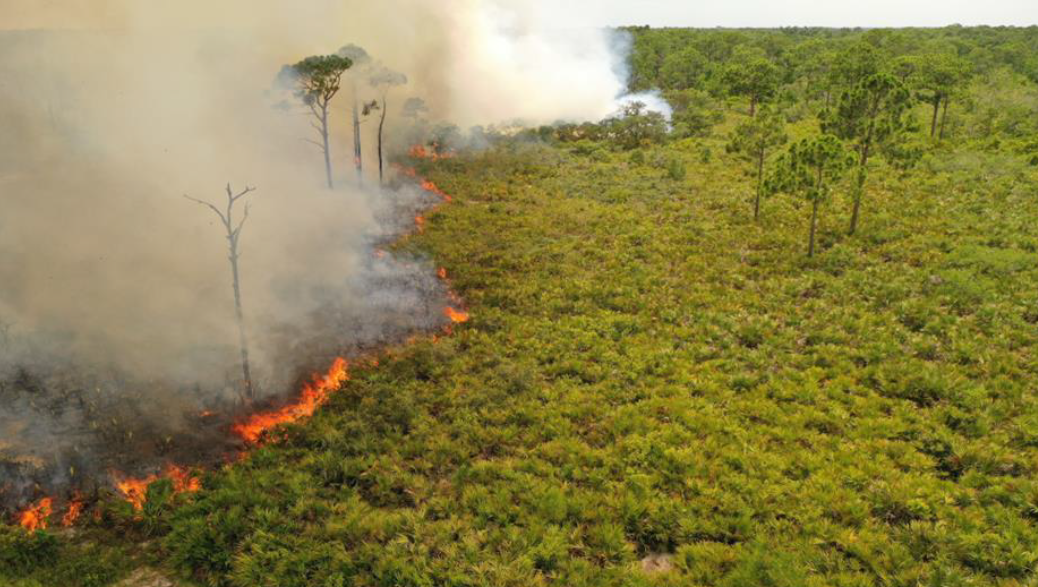 Florida is ground-zero for climate change impacts as our natural and human communities are forced to grapple with increasing heat, flooding, sea level rise, and wildfire risk.
Florida is ground-zero for climate change impacts as our natural and human communities are forced to grapple with increasing heat, flooding, sea level rise, and wildfire risk.
Archbold approached Florida Atlantic University to assess overlaps between land conservation in the Florida Wildlife Corridor and the resilience of the state’s nature and people to advancing climate change.
Archbold’s conservation program is using the Florida Wildlife Corridor and Climate Change Report’s results to credibly motivate the Corridor’s protection.
The report's executive summary is available here.
 Companies that proactively manage climate risks boost their valuations, while those with a passive stance are discounted in the equity market, according to new research.
Companies that proactively manage climate risks boost their valuations, while those with a passive stance are discounted in the equity market, according to new research.
A pioneering study from the University of Florida has quantified corporations’ exposure to climate change risks like hurricanes, wildfires, and climate-related regulations and the extent to which climate risks are priced into their market valuations. The research also exposes a costly divide – companies that proactively manage climate risks fare much better than those that ignore the threats.
The "Corporate Climate Risk: Measurements and Responses" is published in the Review of Financial Studies.
The research team also shared their climate risk measures at www.corporateclimaterisk.com
You can read more here.
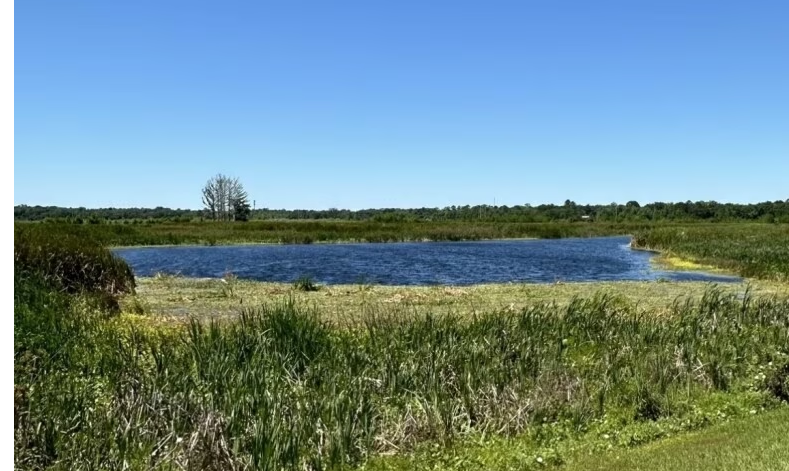 As Florida faces an influx of people and rapid land development, there are growing needs when it comes to effectively protecting critical landscapes.
As Florida faces an influx of people and rapid land development, there are growing needs when it comes to effectively protecting critical landscapes.
Researchers at the University of Florida Center for Coastal Solutions and Center for Landscape Conservation Planning recently developed a tool to help address some of those needs. The Land Conservation Optimizer Tool helps identify optimal conservation lands in Florida that could help improve water quality if they are protected, according to the UF Center for Coastal Solutions.
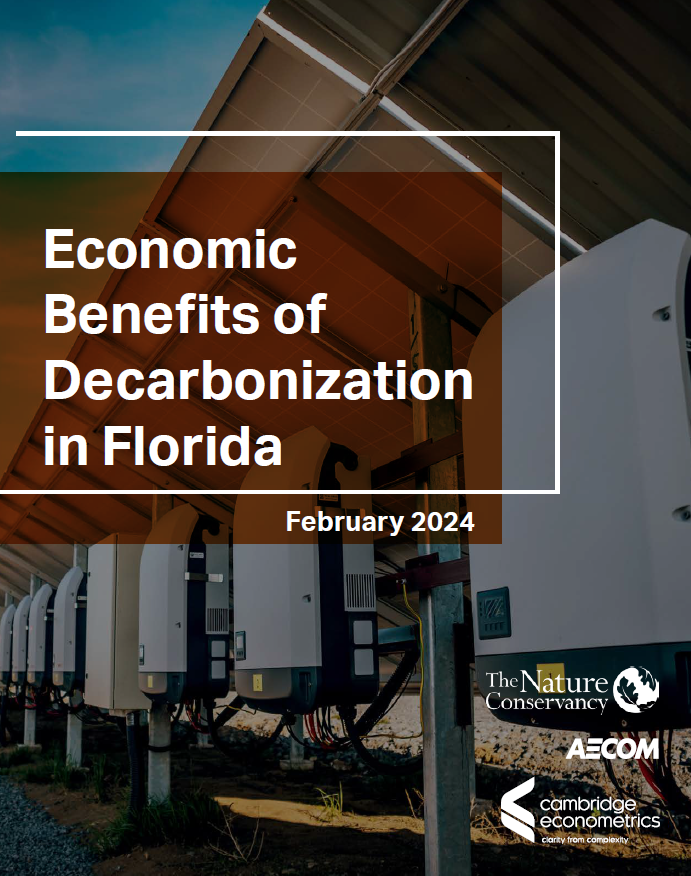 The Nature Conservancy (TNC) in Florida, with the expertise of AECOM and Cambridge Econometrics, has published a first-of-its kind economic study on the impacts of decarbonizing Florida’s economy: Economic Benefits of Decarbonization in Florida. The report looks at two decarbonization scenarios—achieving a power grid with net zero emissions by 2035 (Net Zero Power System) and achieving net zero emissions economy-wide by 2050 (Net Zero Economy). The decarbonization of our economy—reducing greenhouse gas emissions (including carbon dioxide) in manufacturing, transport, energy and other parts of our economy—can drive vast job growth and prosperity for Florida. Decarbonization will expand and create higher-paying jobs, offering opportunities for workers of all skills and education levels, as well as lower consumer costs. This report was built on the Getting to Neutral report that the FCI produced previously.
The Nature Conservancy (TNC) in Florida, with the expertise of AECOM and Cambridge Econometrics, has published a first-of-its kind economic study on the impacts of decarbonizing Florida’s economy: Economic Benefits of Decarbonization in Florida. The report looks at two decarbonization scenarios—achieving a power grid with net zero emissions by 2035 (Net Zero Power System) and achieving net zero emissions economy-wide by 2050 (Net Zero Economy). The decarbonization of our economy—reducing greenhouse gas emissions (including carbon dioxide) in manufacturing, transport, energy and other parts of our economy—can drive vast job growth and prosperity for Florida. Decarbonization will expand and create higher-paying jobs, offering opportunities for workers of all skills and education levels, as well as lower consumer costs. This report was built on the Getting to Neutral report that the FCI produced previously.
Read the full press release here.
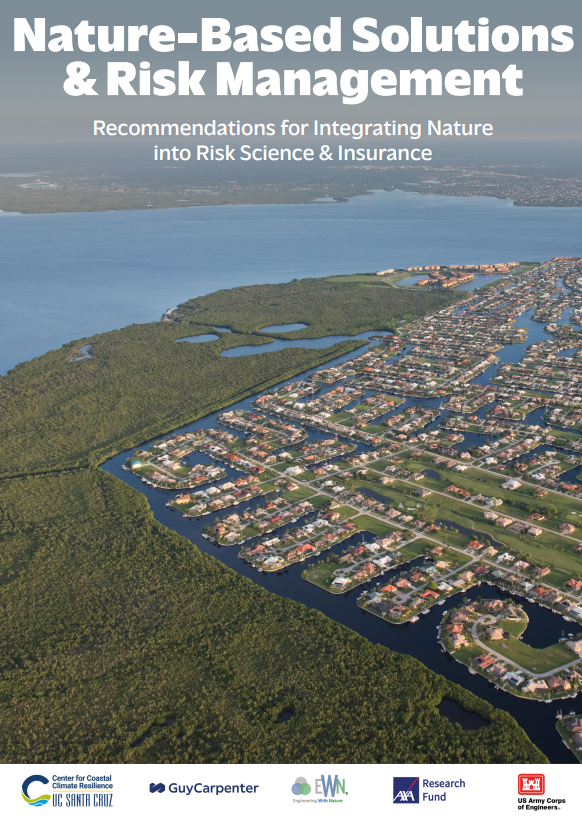 Risks from natural hazards are growing due to climate change and habitat loss. Both insurance and nature-based solutions (NBS) can play important roles in reducing risks. Practitioners in the fields of risk management, insurance, and environmental management have many common goals for assessing risks and developing practical tools for risk reduction.
Risks from natural hazards are growing due to climate change and habitat loss. Both insurance and nature-based solutions (NBS) can play important roles in reducing risks. Practitioners in the fields of risk management, insurance, and environmental management have many common goals for assessing risks and developing practical tools for risk reduction.
Read the full report here.
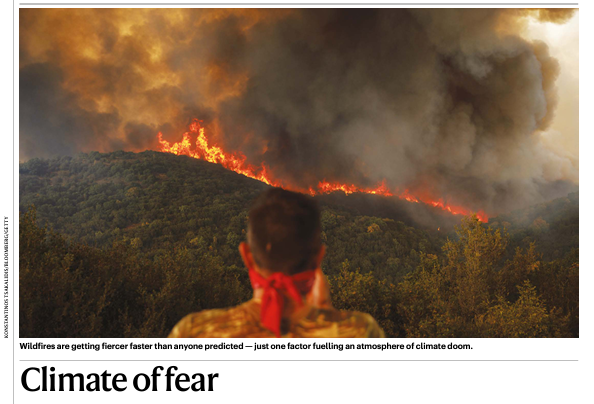
How should the public—and scientists—cope with the daunting uncertainties of climate change?. By Adam Sobel
Interesting piece in the journal Nature about the intersection of the planet’s future and the human condition.
Read the full article here
The coldest winter temperature of the last few decades is a strong explanation of variations in mangrove species, size and coverage, in a new paper out in British Ecological Society. PhD student Yiyang Kang, Dr. David Kaplan and Dr. Michael Osland used this information to predict how mangroves on Florida's Gulf Coast will respond to rapid warming under climate change.
Read the full paper in the Journal of Ecology
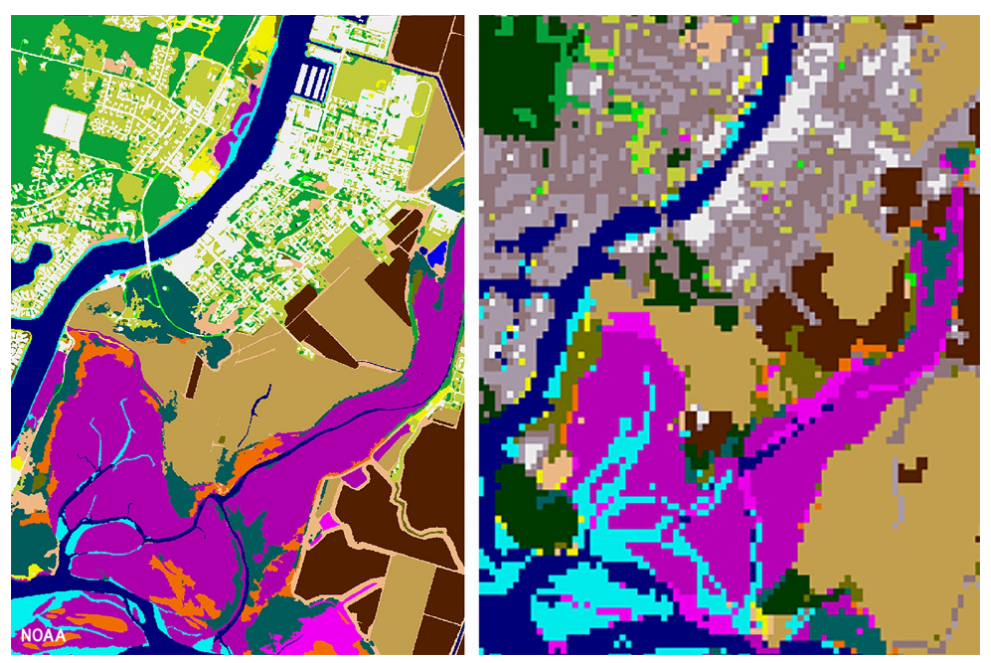 High-resolution land cover data is now available through NOAA’s Digital Coast. This data provides communities with the foundational data needed to assess coastal resources, analyze land use, prepare for disaster risks, and adapt to a changing climate.
High-resolution land cover data is now available through NOAA’s Digital Coast. This data provides communities with the foundational data needed to assess coastal resources, analyze land use, prepare for disaster risks, and adapt to a changing climate.
Land cover is a foundational data set that provides valuable information for a range of applications, including natural resource management, land use planning, disaster risk reduction, and climate adaptation. By comparing one year to another, people also use the information to document how the landscape has changed over time.
NOAA, in conjunction with several partners, released a high-resolution version of this data product, moving from 30-meter resolution to 1-meter.
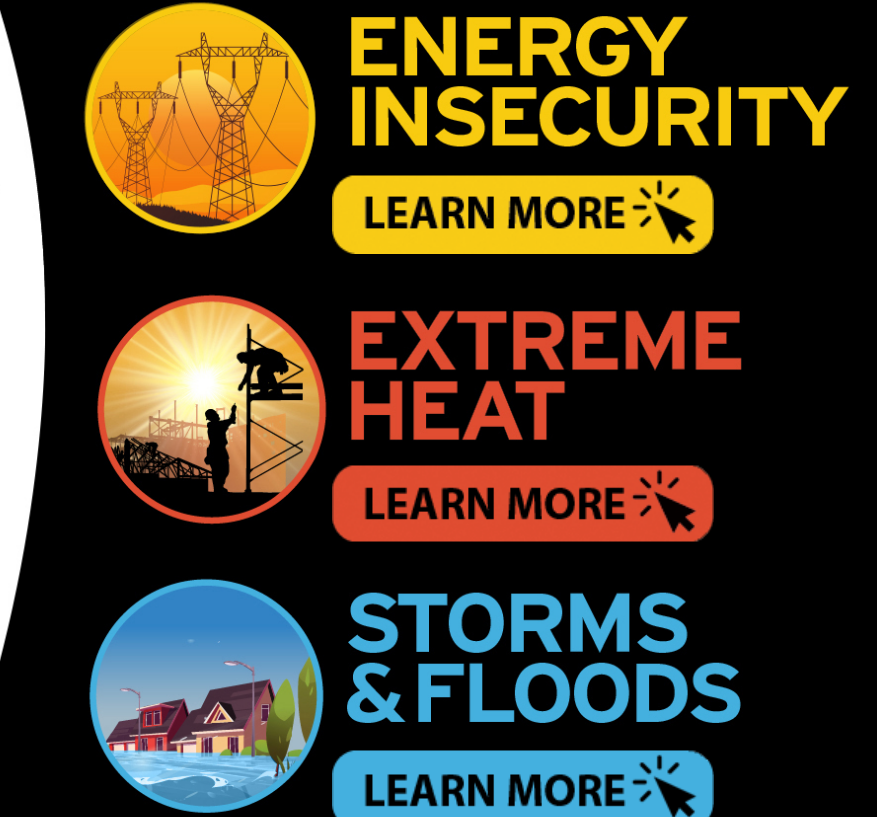 This platform utilizes public data from leading climate scientists to provide a comprehensive depiction of Florida's future climate challenges and economic impacts. Utilizing public data, this tool serves policymakers, researchers, and the public, actively contributing to fostering informed decision-making and proactive measures in the middle of Florida's evolving climate landscape.
This platform utilizes public data from leading climate scientists to provide a comprehensive depiction of Florida's future climate challenges and economic impacts. Utilizing public data, this tool serves policymakers, researchers, and the public, actively contributing to fostering informed decision-making and proactive measures in the middle of Florida's evolving climate landscape.
The University of Florida (UF) Student Senate passed a Green New Deal (GND) resolution Tuesday, with supporters saying they were the first public college in the country to do so.
The student government is calling for the university to implement the school’s Department of Sustainability climate plan, more transparency in investments that UF has in the private sector, the cutting off of any additional funding from the fossil fuel industry for research, divesting the school’s endowment from the fossil fuel industry and including groups in the plan that have been most impacted by climate change.
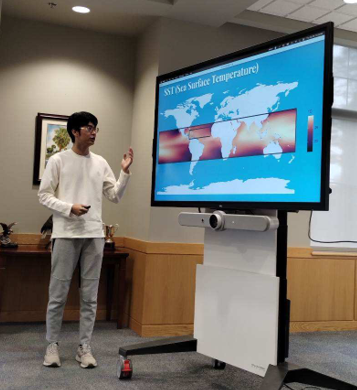 University of Florida students from several colleges/disciplines including Architecture, Geography, Anthropology, Statistics, Journalism, Forestry and Conservation, and Plant Sciences presented their findings from their year-long fellowship funded by the FCI. Many thanks to these students for their hard work and to their mentors for their inspiration!
University of Florida students from several colleges/disciplines including Architecture, Geography, Anthropology, Statistics, Journalism, Forestry and Conservation, and Plant Sciences presented their findings from their year-long fellowship funded by the FCI. Many thanks to these students for their hard work and to their mentors for their inspiration!
Deadline to apply for 2024-25 Fellowship at UF is March 22!
See details & application information here.
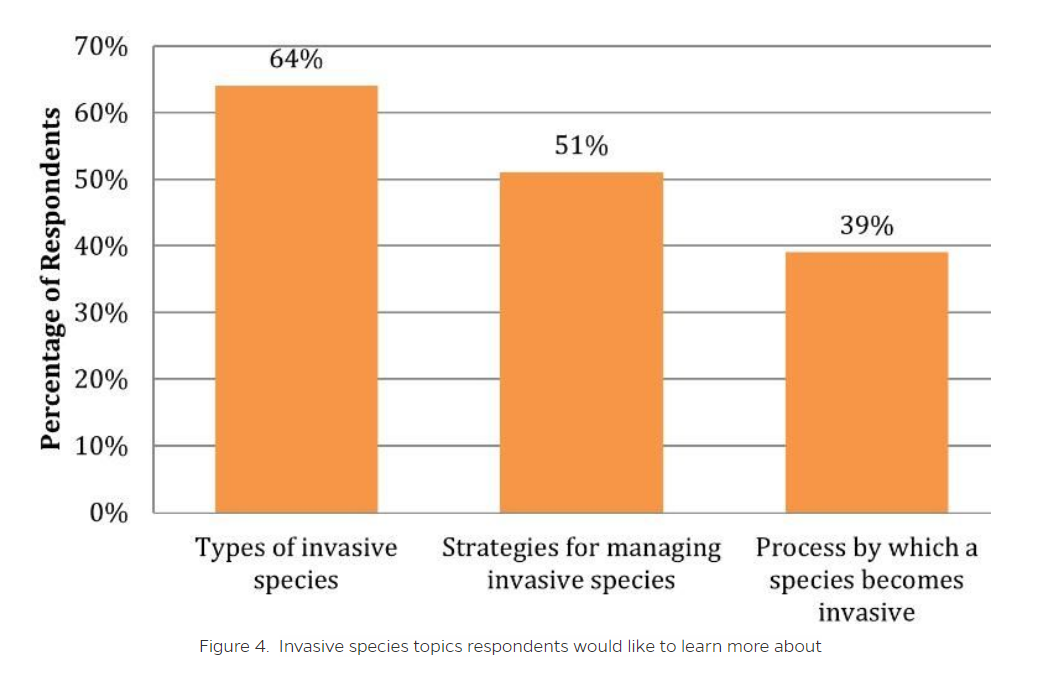 Invasive species are a serious threat in Florida. Invasive species are defined as non-native or exotic organisms, which cause ecological or economic harm or negatively affect human health in a new environment where they are not historically found (United States Fish and Wildlife Service [USFWS] 2012b). An invasive species can be a plant, animal, or other type of organism (Evans 2012). Because invasive species' natural predators and parasites usually are not present in the new environment, their populations can grow unchecked causing significant impacts in the new environment
Invasive species are a serious threat in Florida. Invasive species are defined as non-native or exotic organisms, which cause ecological or economic harm or negatively affect human health in a new environment where they are not historically found (United States Fish and Wildlife Service [USFWS] 2012b). An invasive species can be a plant, animal, or other type of organism (Evans 2012). Because invasive species' natural predators and parasites usually are not present in the new environment, their populations can grow unchecked causing significant impacts in the new environment
Our Kickoff event will be a U.S. Scholar Program Info Session on Tuesday, March 5th, featuring Keegan Scott, Institute of International Education Outreach and Recruitment Officer.
Please consider sharing the attached flyers and keep an eye on social media and our weekly newsletter for events throughout the month!
For more information, contact Claire Anumba at
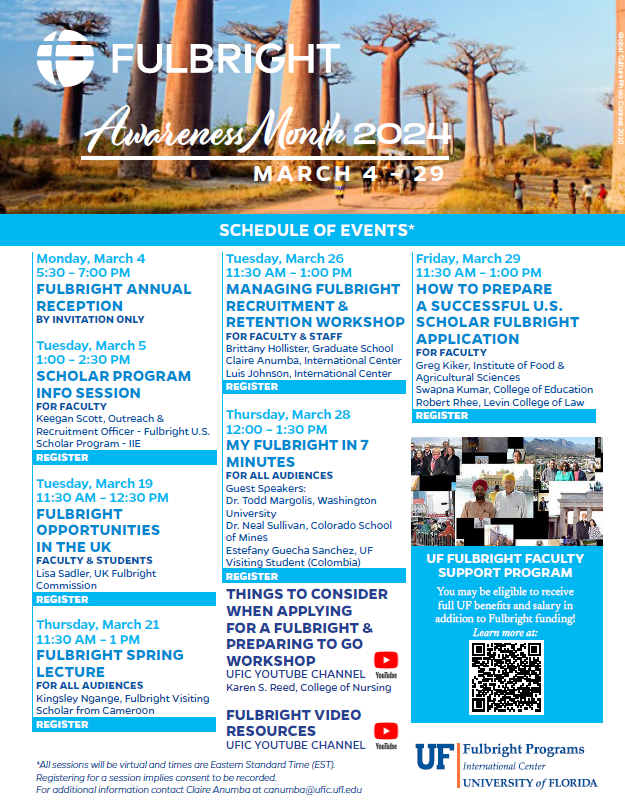
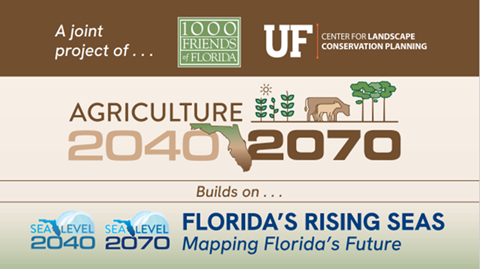 On Wednesday, January 24, the University of Florida Center for Landscape Conservation Planning and 1000 Friends of Florida released a new statewide GIS-based report, Agriculture 2040/2070. This report, downloadable maps, webinar broadcast, and more are available at 1000fof.org/ag2040-2070.
On Wednesday, January 24, the University of Florida Center for Landscape Conservation Planning and 1000 Friends of Florida released a new statewide GIS-based report, Agriculture 2040/2070. This report, downloadable maps, webinar broadcast, and more are available at 1000fof.org/ag2040-2070.
This study explores possible impacts of development and sea level rise on Florida’s agricultural lands and their conservation values. Building on the earlier Sea Level 2040/2070 study, it incorporates more comprehensive data on agriculture.
Florida’s agricultural lands provide essential ecosystem services including protecting water supply and quality, providing flood control, supporting climate resilience, sequestering carbon, harboring wildlife, promoting outdoor recreation, and more.
Agriculture is also a cornerstone of Florida’s economy. According to the University of Florida Institute of Food and Agricultural Science (IFAS), the direct economic contributions of the agriculture, natural resource, and food industries in 2019 included $106 billion in sales and 1,279,638 jobs.
Agriculture 2040/2070 sheds light on the significant threats facing these lands, and what can be done to lessen impacts over the coming decades.
We hope you'll take a few minutes to check out the website and read the report to learn more about this critical issue.
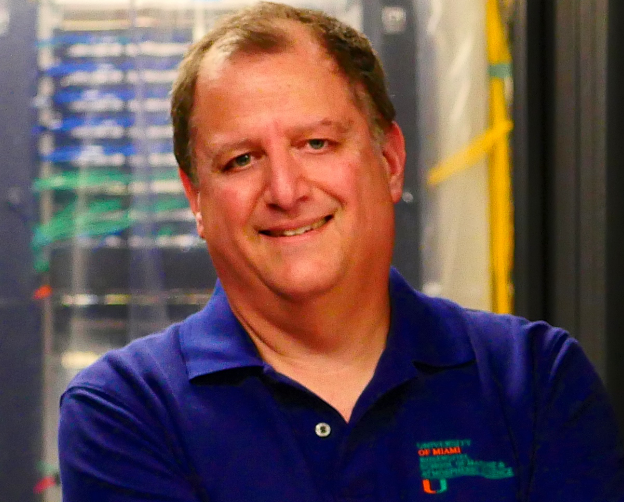 Ben Kirtman, Professor of Atmospheric Sciences and the William R. Middelthon, III Endowed Chair of Earth Sciences at the Rosenstiel School has been elected a 2023 Fellow of the American Geophysical Union for his fundamental work on tropical climate dynamics and climate prediction on timescales from days to decades.
Ben Kirtman, Professor of Atmospheric Sciences and the William R. Middelthon, III Endowed Chair of Earth Sciences at the Rosenstiel School has been elected a 2023 Fellow of the American Geophysical Union for his fundamental work on tropical climate dynamics and climate prediction on timescales from days to decades.
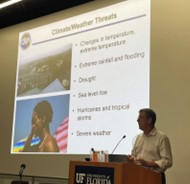 Special thanks to David Zierden (FSU), Emily Powell (FSU), Cori Matyas (UF), Kati Serafin (UF), Amy Clement (U Miami), David Keelings (UF), and Marshall Shepherd (UGA). Really an all-star line up to help attendees understand the data, changes and trends, and how it all connects to climate change. Watch here if you could not attend.
Special thanks to David Zierden (FSU), Emily Powell (FSU), Cori Matyas (UF), Kati Serafin (UF), Amy Clement (U Miami), David Keelings (UF), and Marshall Shepherd (UGA). Really an all-star line up to help attendees understand the data, changes and trends, and how it all connects to climate change. Watch here if you could not attend.
This annual event is a partnership between the FCI and CJC. Looking forward to #10!
Coverage in Invading Sea here.
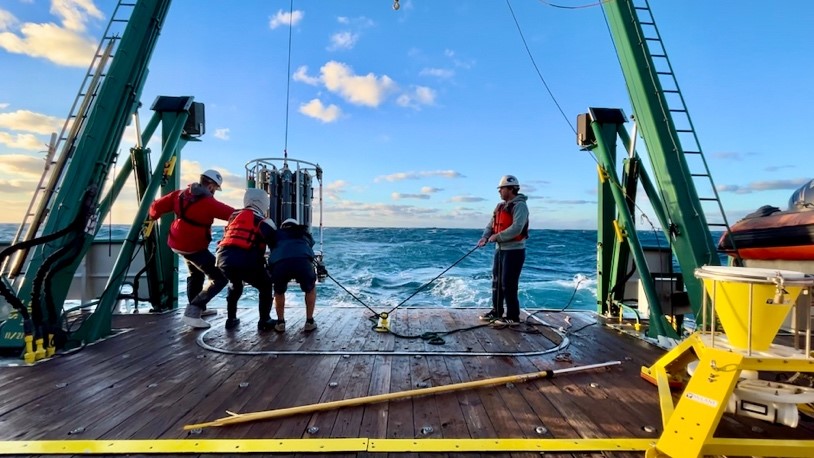 Results offer a glimmer of hope as climate change impacts coral reefs worldwide
Results offer a glimmer of hope as climate change impacts coral reefs worldwide
Researchers studying South Florida’s coral reefs found that the region’s nearshore reefs and more sheltered inshore areas are less vulnerable to ocean acidification than previously thought – a major climate-related threat to coral reefs as ocean waters absorb more atmospheric CO2 from the burning of fossil fuels.
This new study, led by scientists at the University of Miami Rosenstiel School of Marine, Atmospheric, and Earth Science, and the National Oceanic and Atmospheric Administration's (NOAA) Atlantic Oceanographic and Meteorological Laboratory (AOML), offers a glimmer of hope for Florida’s iconic coral reefs as ocean acidification, along with marine heat waves and other climate-related threats are impacting coral reefs worldwide.
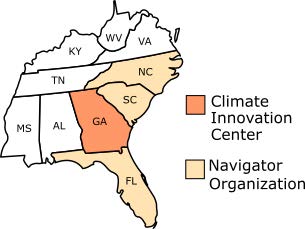 This project will serve the 72 communities in Florida, Georgia, North Carolina, and South Carolina that have recently received Community Disaster Resilience Zone (CDRZ) designations from the Federal Emergency Management Agency (FEMA). Dr. Emily Powell from FSU and Carolyn Cox from UF will co-lead the Florida region along with several partners from UF-IFAS Extension and Sea Grant within the CDRZ communities.
This project will serve the 72 communities in Florida, Georgia, North Carolina, and South Carolina that have recently received Community Disaster Resilience Zone (CDRZ) designations from the Federal Emergency Management Agency (FEMA). Dr. Emily Powell from FSU and Carolyn Cox from UF will co-lead the Florida region along with several partners from UF-IFAS Extension and Sea Grant within the CDRZ communities.
Our partner organizations Georgia Conservancy, the North Carolina Office of Recovery and Resiliency, the Shi Institute for Sustainable Communities at Furman University, and the Florida Climate Institute will establish Navigators to serve as trusted partners for CDRZ communities in their state. These Navigators will work directly with CDRZ communities to help them identify and take advantage of funding sources and capacity building opportunities, and secure technical support necessary to develop strategies that lead to tangible resilience benefits. Additionally, Project IN-CORE and Resilient Cities Catalyst will offer direct technical support to communities across the four states.
In addition to supporting CDRZ communities, this project serves as a Climate Ready America demonstration project and supports planning for the Georgia Climate Innovation Center. This project also serves a larger role within the climate resilience field by developing a measurement and evaluation framework, led by EcoAdapt, that can be used by organizations helping CDRZ communities nationwide.
We are continuing to work with federal agencies, philanthropies, and the corporate sector to build a national network of Navigators to support CDRZ communities in all states and territories. Our goal is to have this network of climate services for CDRZ communities serve as the foundation for the Climate Ready America initiative.
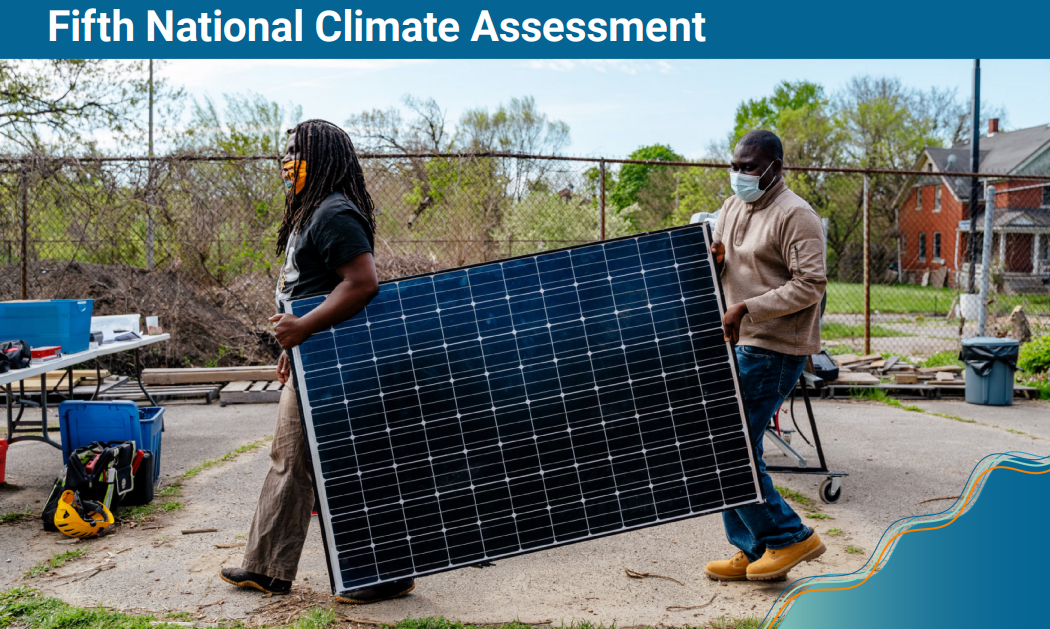
The effects of a rapidly warming climate are being felt in every corner of the US and will worsen over the next 10 years with continued fossil fuel use, according to a stark new report from federal agencies. The Assessment evaluates climate impacts across 10 U.S. regions and a wide range of interests, including water, forests and ecosystems, coasts and oceans, agriculture and rural communities, the built environment, energy and transportation, health and air quality, and economic and social systems.
You can find a report overview, figures, and the full report itself on the NCA 2023 website.












